Jin gui shen qi wan,Jin Kui Shen Qi Wan,Jinkui Shenqi Pills
Source Jinkui Shenqi Pills, from the Jinkui Yaolue of the Han Dynasty. This recipe is also known as “Bawei Shenqi Pills”.
Formula composition 240g of dried Rehmannia root, 120g of Cornus officinalis, 120g of Chinese yam, 90g of Alisma orientalis, 90g of Poria cocos, 90g of Paeonia suffruticosa, 30g of Cinnamon twig, 30g of Aconite.
Usage and dosage Make honey pills, take 15 pills (6g each time, can be increased to 25 pills (10g), with wine, twice a day. In clinical application, it can be changed to a decoction, decocted in water, twice a day, and the dosage of each medicine is reduced to the usual dosage of the decoction according to the proportion.
Efficacy Tonifies the kidney and helps yang.
Main indications Indications for kidney yang deficiency syndrome, symptoms include sore waist and weak legs, lower abdominal cramps, difficulty urinating or clear and long urination, restlessness and heat, unable to lie down and leaning to breathe, pale and fat tongue, weak pulse.
Clinical application It is mainly used in the clinic to treat chronic nephritis, bronchial asthma remission, prostatic hyperplasia, male infertility and other diseases.
1. Chronic nephritis: 50 cases were treated with Jinkui Shenqi Pills with added ingredients, and the cure results were as follows: 41 cases were clinically cured, 7 cases were improved, 2 cases were ineffective, and the total effective rate was 96%. (Shaanxi Traditional Chinese Medicine, 2010, No. 5)
2. Bone tuberculosis: Taking Jinkui Shenqi Pills orally, 9 grams each time, orally twice or using the original recipe of this product for decoction to treat bone tuberculosis can achieve good results. One of the patients with bone tuberculosis who had been ill for 3 years and had not seen improvement after more than half a year of anti-tuberculosis, analgesia, blockade and Chinese medicine treatment, took the medicine for 40 days, and all symptoms were relieved. After taking the medicine for 3 months, all symptoms were eliminated and he could take care of himself. X-ray reexamination showed that the original lesion had repaired the bone Bridge formation, no new bone destruction, no recurrence during follow-up for many years. (Chinese Journal of Traditional Chinese Medicine and Pharmacy, 2007, No. 2)
3. Male infertility: 42 cases of oligoasthenozoospermia were treated with modified herbs, and compared with 21 cases treated with clomiphene citrate and inosine. The cure was defined as the pregnancy of the spouse, the marked effect was defined as the normal sperm density, number, vitality, activity rate and deformity rate even if the pregnancy was not achieved, and the improvement of the semen routine examination was defined as effective even if the sperm function test was abnormal. The course of treatment was 90 days. Results: 18 cases were cured, 15 cases were markedly effective, 4 cases were effective, and the total effective rate was 88.10% in the treatment group; 4 cases were cured, 3 cases were markedly effective, 5 cases were effective, and the total effective rate was 57.14% in the control group. (Journal of Medical Forum, 2007, No. 22)
Explanation of the prescription Jinkui Shenqi Pills are designed for the symptoms of kidney yang deficiency, so the method is to nourish the kidney and boost yang, “benefit the source of fire to eliminate yin”, and supplement with diuresis and dampness. The prescription uses cinnamon twig and aconite to warm the kidney and boost yang, cooked rehmannia root, cornus officinalis, and Chinese yam to nourish the yin of the liver, spleen, and kidney. Yin and yang complement each other, and hardness and softness complement each other, so that the kidney’s vital energy is infinite; then Alisma orientalis and Poria cocos are used to boost diuresis and dampness, and peony bark is good at entering the blood, and cinnamon twig can regulate blood stagnation. The combination of these medicines can help the weak yang to transform Water nourishes the deficiency of yin to generate vitality, invigorates kidney yang, and restores normal qi transformation.
Clinical application is based on low back pain and weak legs, difficulty in urination or frequent urination, pale and fat urine tongue, weak pulse and deep and fine pulse in the radial part as the key points of syndrome differentiation. For those who are afraid of cold and have cold limbs, cinnamon twigs can be replaced with cinnamon bark, and the amount of cinnamon and aconite can be increased; if used for impotence, epimedium, psoralea corylifolia, Morinda officinalis, etc. can be added to help strengthen yang and cure impotence; for those with phlegm, cough and asthma, add dried ginger, asarum, pinellia, etc. to warm the lungs and transform phlegm.
Modern research Early literature reported that Jinkui Shenqi Pills can treat diabetes, diabetic neurogenic bladder, hypertension, hypotension, chronic bronchitis, chronic obstructive pulmonary disease, chronic heart failure, urinary tract infection, enuresis, neurasthenia, spontaneous pneumothorax, cataracts, impotence, menopausal syndrome, functional uterine bleeding, Sheehan syndrome, infertility, neurosis, bone hyperplasia, urticaria, oral ulcers, recurrent oral ulcers and other symptoms of kidney yang deficiency.
Experimental studies have shown that Jinkui Shenqi Pills have anti-aging and intelligence-enhancing effects and functions, and can also improve immune function, enhance gonadal function, increase sex hormone levels and promote bone callus.
Prescription Song Jinkui Shenqi treats kidney deficiency, cooked rehmannia, Huaiyao and cornus, moutan bark, lingze and cinnamon, lead fire back to the origin and heat downward.
Excerpt from “Jinkui Yaolue” in the Han Dynasty



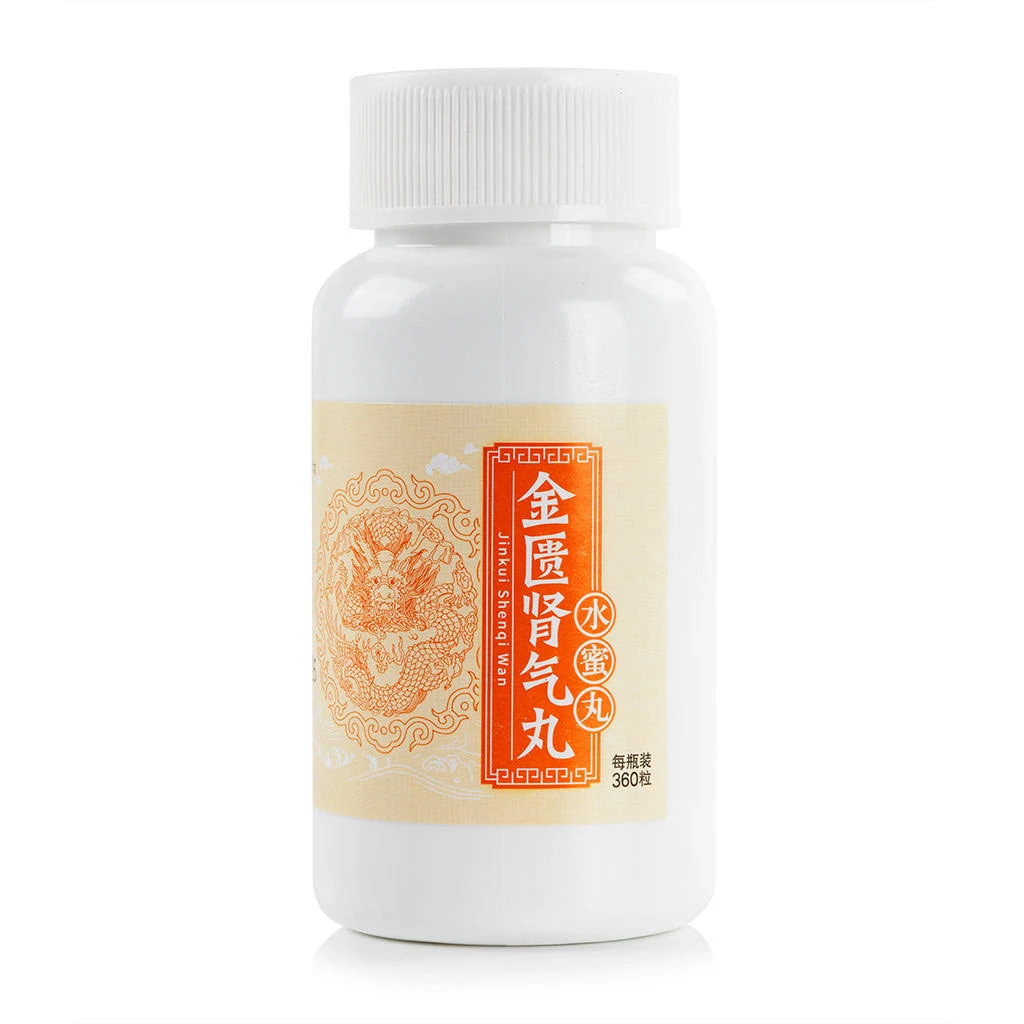
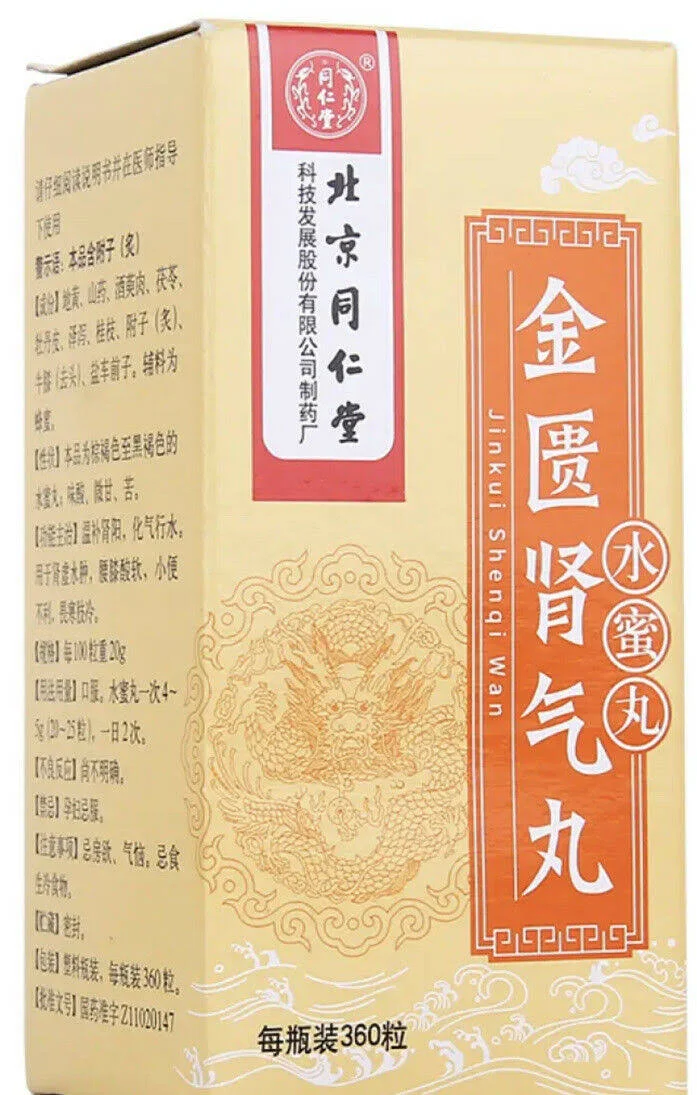
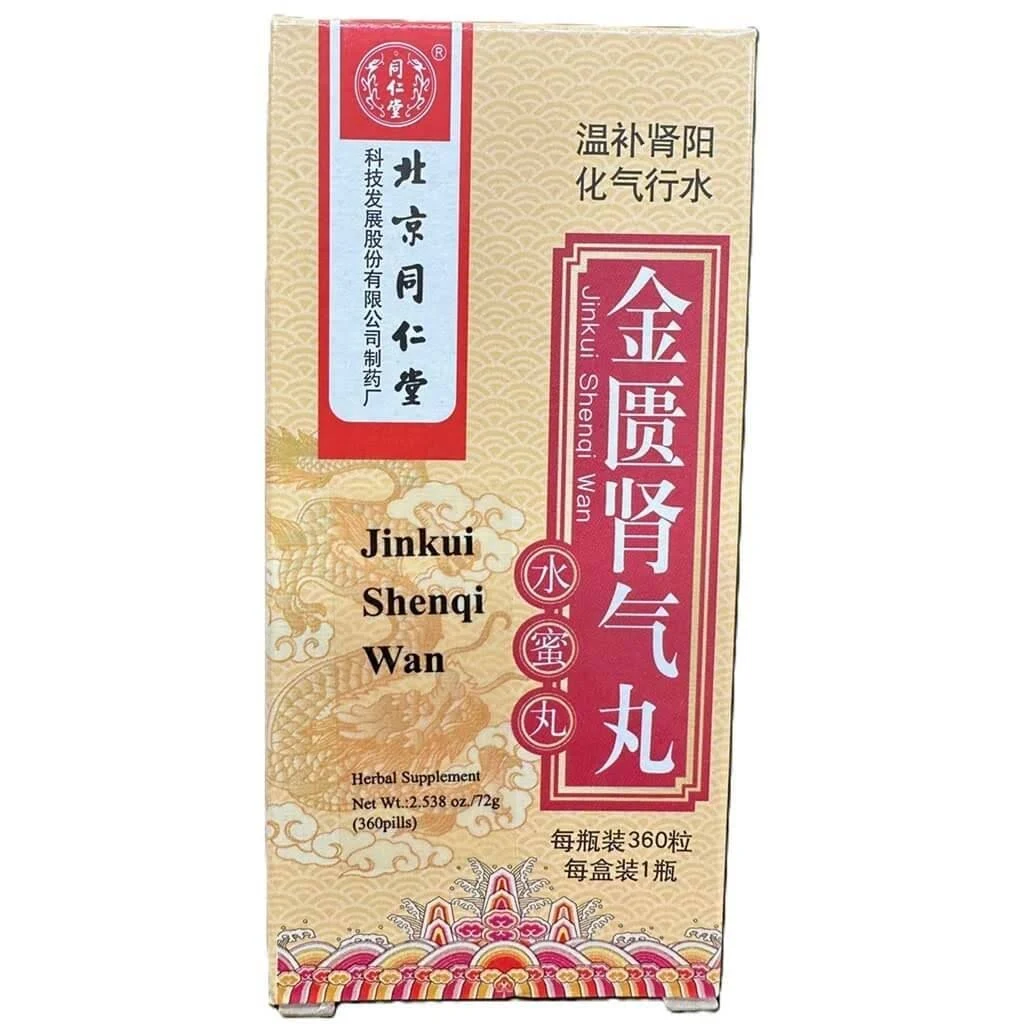
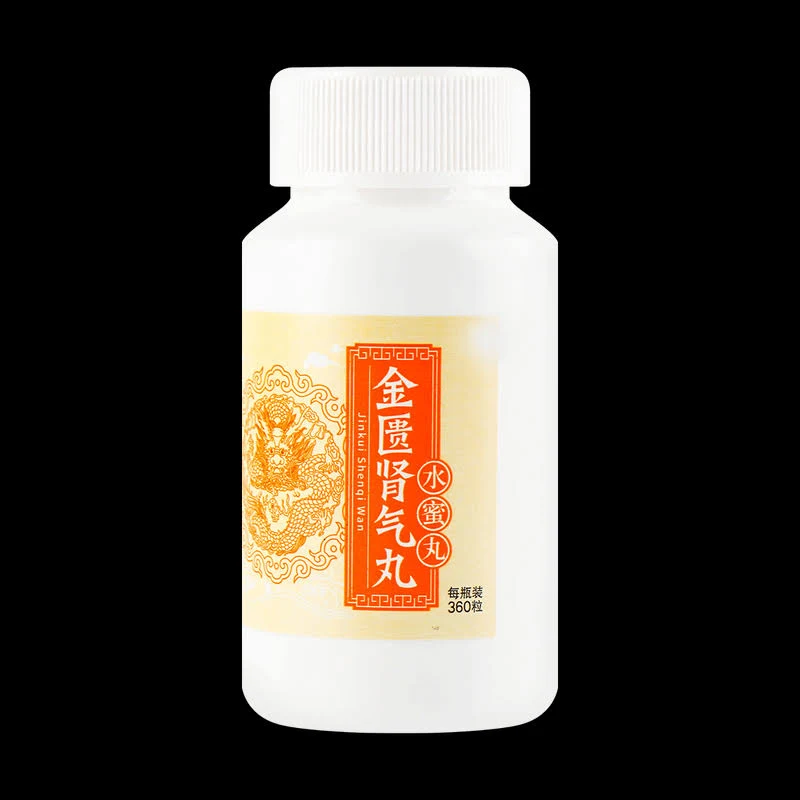

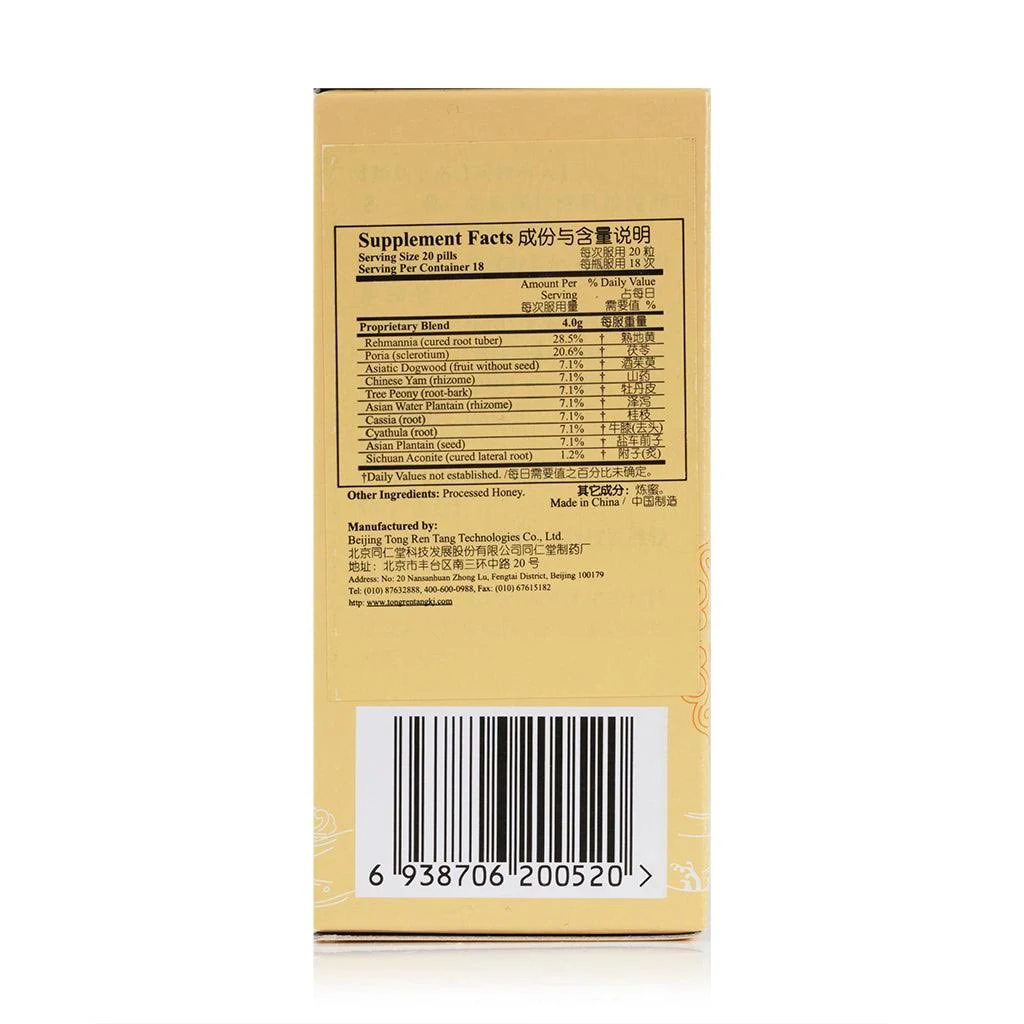



Avaliações
Ainda não existem avaliações.